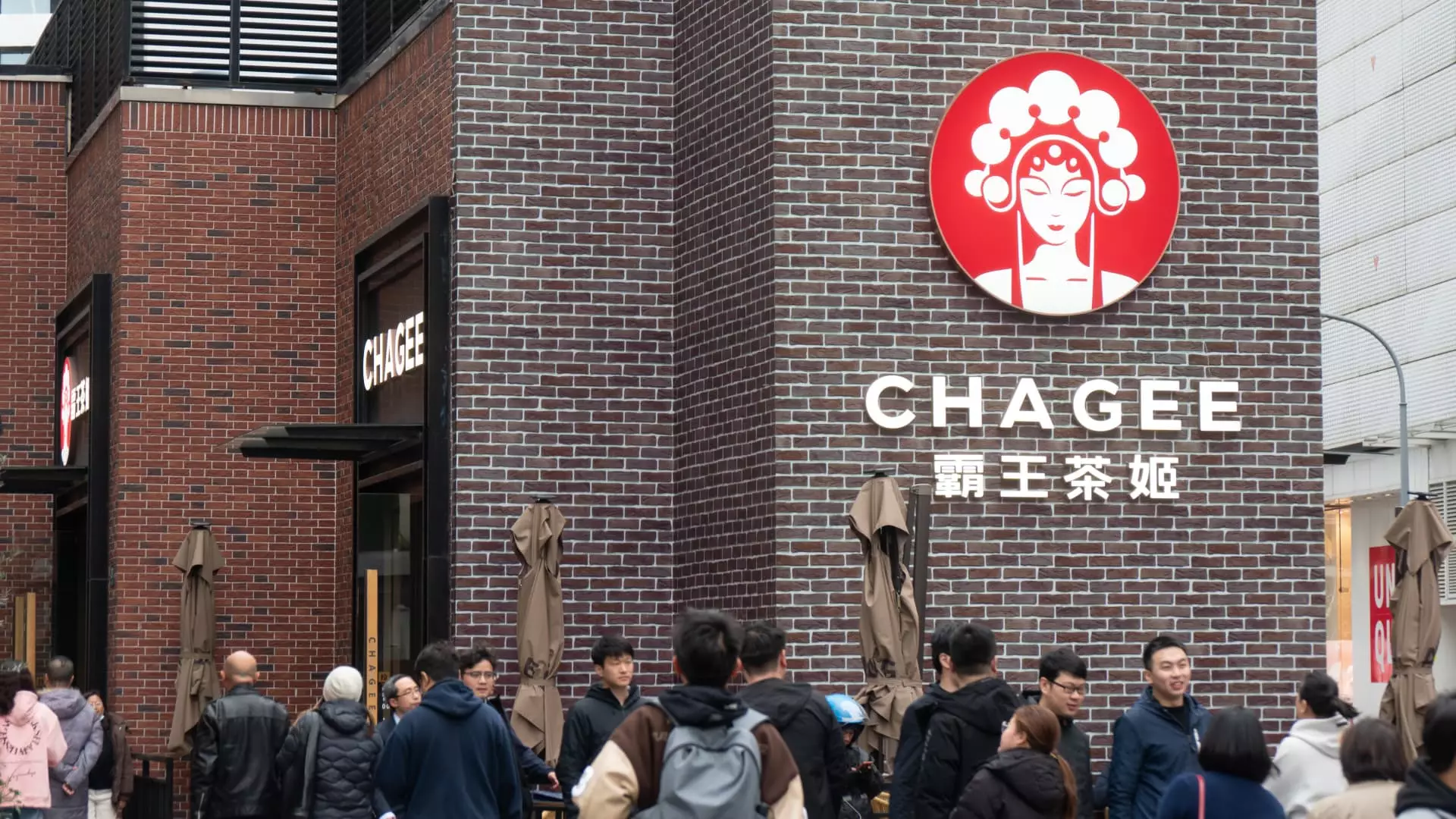Chagee, a burgeoning Chinese bubble tea chain, has taken a significant stride toward international ambition by filing for an initial public offering (IPO) on Nasdaq, seeking to trade under the ticker “CHA.” This move comes in tandem with the opening of its inaugural U.S. store in Los Angeles, adding to the company’s current stronghold of over 6,400 teahouses predominantly concentrated in China. The gravity of this IPO should not only be measured in numbers or store openings but also in the larger narrative of global commerce and cross-cultural consumption. Chagee, which generated a net income of $344.5 million on revenues of $1.7 billion in 2024, reflects a sizable shift in consumer preferences and the ever-evolving market landscape.
The Political Landscape: A Double-Edged Sword
Yet, the backdrop of Chagee’s IPO journey appears tinged with political complications. Amid deteriorating U.S.-China relations, there’s a palpable scrutiny surrounding Chinese enterprises seeking U.S. listings. Recent data indicates a 5% decline in the number of Chinese companies trading on major U.S. exchanges over the past year, revealing a climate that is increasingly hostile to foreign investment. The ongoing tensions and legislative hurdles following scandals, such as the infamous Luckin Coffee fiasco, paint a comparison that could deeply affect investor sentiment. For potential investors, the specter of previous scandals hangs heavy, raising questions about transparency and financial ethics within the Chinese corporate framework.
A Call for Innovation: Learning from the Past
Chagee’s founder, Junjie Zhang, cites a desire to modernize tea drinking, inspired by the success of coffee giants like Starbucks. This acknowledgment is both a testament to Zhang’s vision and a stark reminder that innovation comes with its distinct set of challenges. The company aims to “serve tea lovers in 100 countries” and create 300,000 jobs globally, ambitious goals that could resonate positively with investors if effectively communicated. However, the execution of such strategies will likely require a delicate balancing act; establishing credibility while fostering growth in a potentially strained political environment will not be easy.
Consumer Trends and Market Opportunities
In an age where consumer preferences increasingly lean toward unique experiences over traditional offerings, Chagee’s bubble tea concept has the potential to capture market attention not just in Asia, but also among the diverse American palate. As the U.S. beverages market continues to evolve, investing in a brand that marries tradition with modern consumer tastes could be appealing. However, prospective investors and stakeholders must grapple with the broader implications of endorsing a company within an environment rife with political tension.
Finally, while Chagee’s future remains a mixture of promise and potential pitfalls, it is crucial for both the company and its investors to approach this venture with practicality and foresight. Investing in an IPO is not merely about following trends; it’s about aligning ethical practices with consumer expectations to pave the way for sustainable growth. Regardless of the outcome, Chagee’s journey serves as a microcosm of the shifting balance in global business, making it a compelling case study for the complexities of modern capitalism.

